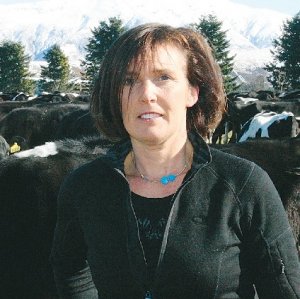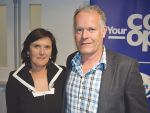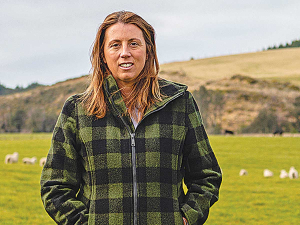NEVER MIND the detail, it’s the whole cooperative ethos that is at stake in this month’s TAF (trading among farmers) vote, says one of the shareholders who instigated the second ballot.
“My first reaction was one of disbelief,” South Canterbury farmer Leonie Guiney told Dairy News after receiving her voting pack. “It’s so complex. Complexity isn’t clever. It’s bad business and bad governance.”
Nothing in the 64-page blueprint, or 24-page due diligence report, allays her view that TAF will prove to be the thin end of a wedge that divides the cooperative.
“If this goes ahead there’ll be the opportunity to ‘game’ shares, and a shift away from the principles of collective risk, collective reward, and collective responsibility that our cooperative was built on.
“There’ll be opportunities for individuals to gain short term from the equity that has gone into Fonterra over generations.”
Traders in units will drive volatility in share price, and farmers holding dry shares will become more focussed on dividend and return on their investment, than milk price, she warns.
“Farmers will have conflicting desires from Fonterra.”
Guiney says the board’s attempts to minimise the risk of gaming, for instance reducing the size of the fund, prove they’ve woken up to the risk.
“They can see the potential for gaming and the potential for this to demutualise the co-op, and what for? All for a $500m fund to stop redemption risk. If anything, this has the potential to increase redemption risk.”
Rhetoric that the board is looking for a stronger mandate than the 50.1% minimum for the TAF vote to pass do not appease. Guiney says chairman Henry van der Heyden should front with a threshold figure without delay. “He should define it before the vote, not reserve the right to define it afterwards.”
Similarly, repeated assurances about 100% ownership and control don’t wash as investors in units will, unless the law is changed, have rights which mean they can exert some control in the cooperative.
Guiney notes Fonterra’s submission to the primary production parliamentary select committee considering the DIRA amendment bill seeks an exemption to those rights.
As for 100% ownership, those guarantees ring hollow too as beneficial rights (i.e. dividends) passing to unit holders effectively confer ownership to those unit holders.
“We are having the wool pulled over our eyes on the 100% ownership issue. It’s why Simon Couper stood down, yet that was dismissed as just a speed bump by the board.”
Given there are already mechanisms to reduce redemption risk the million dollar question remains: what is the real reason the board is so keen to implement TAF? she asks.
“The booklet on my table fails to explain to me just what is wrong with our fantastic cooperative. It tells me only how many experts we have employed to mitigate the risks this fund sets up. I can only think [the reason for TAF] is because it will give management the opportunity to leverage the balance sheet more aggressively.”


















